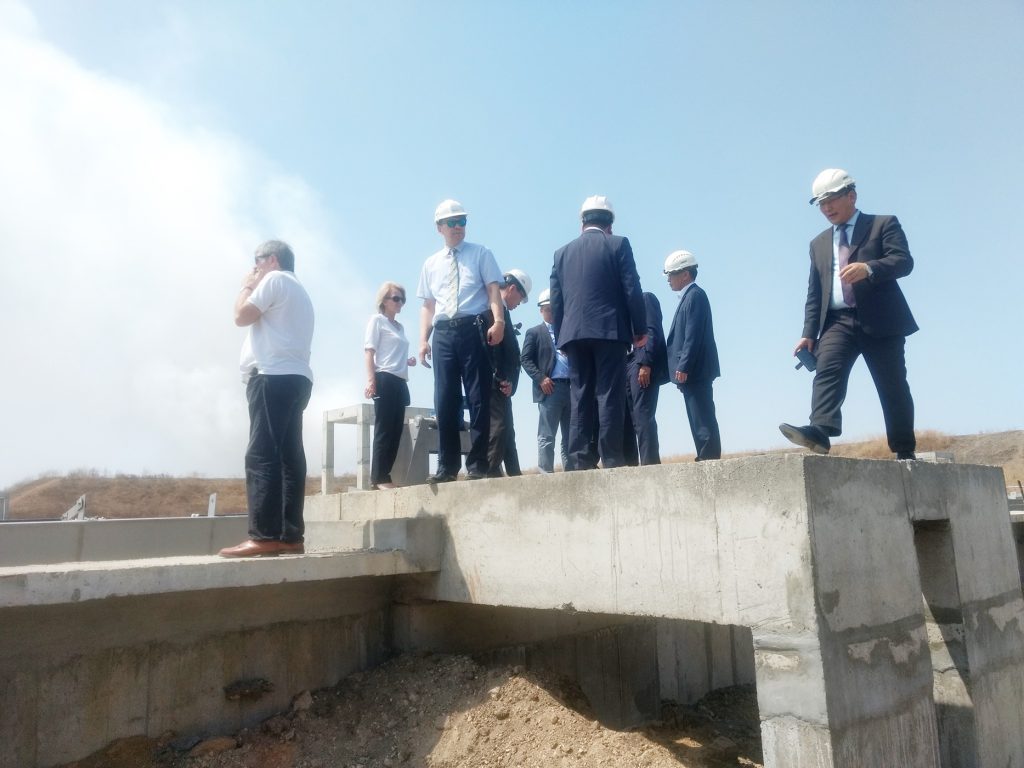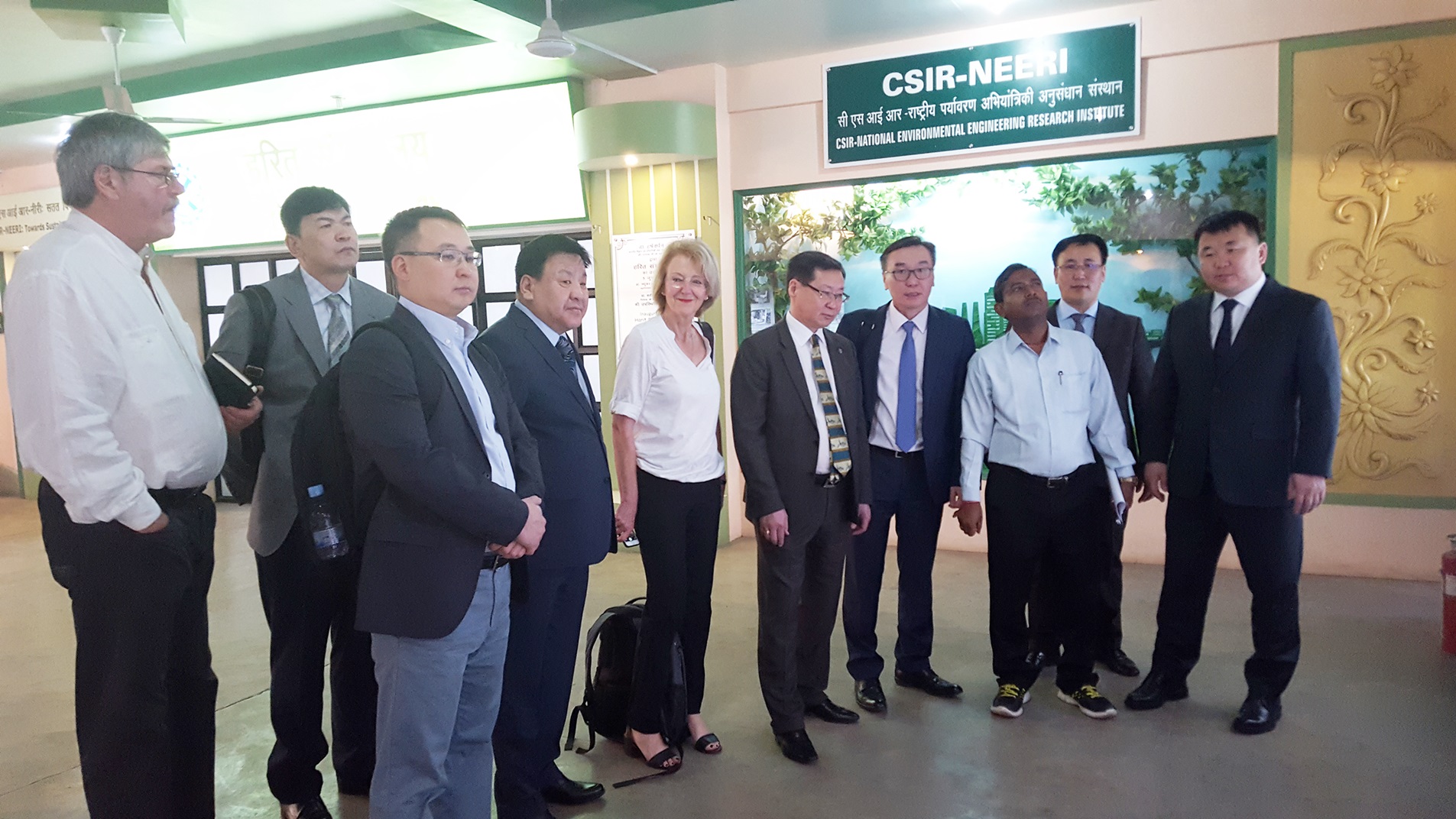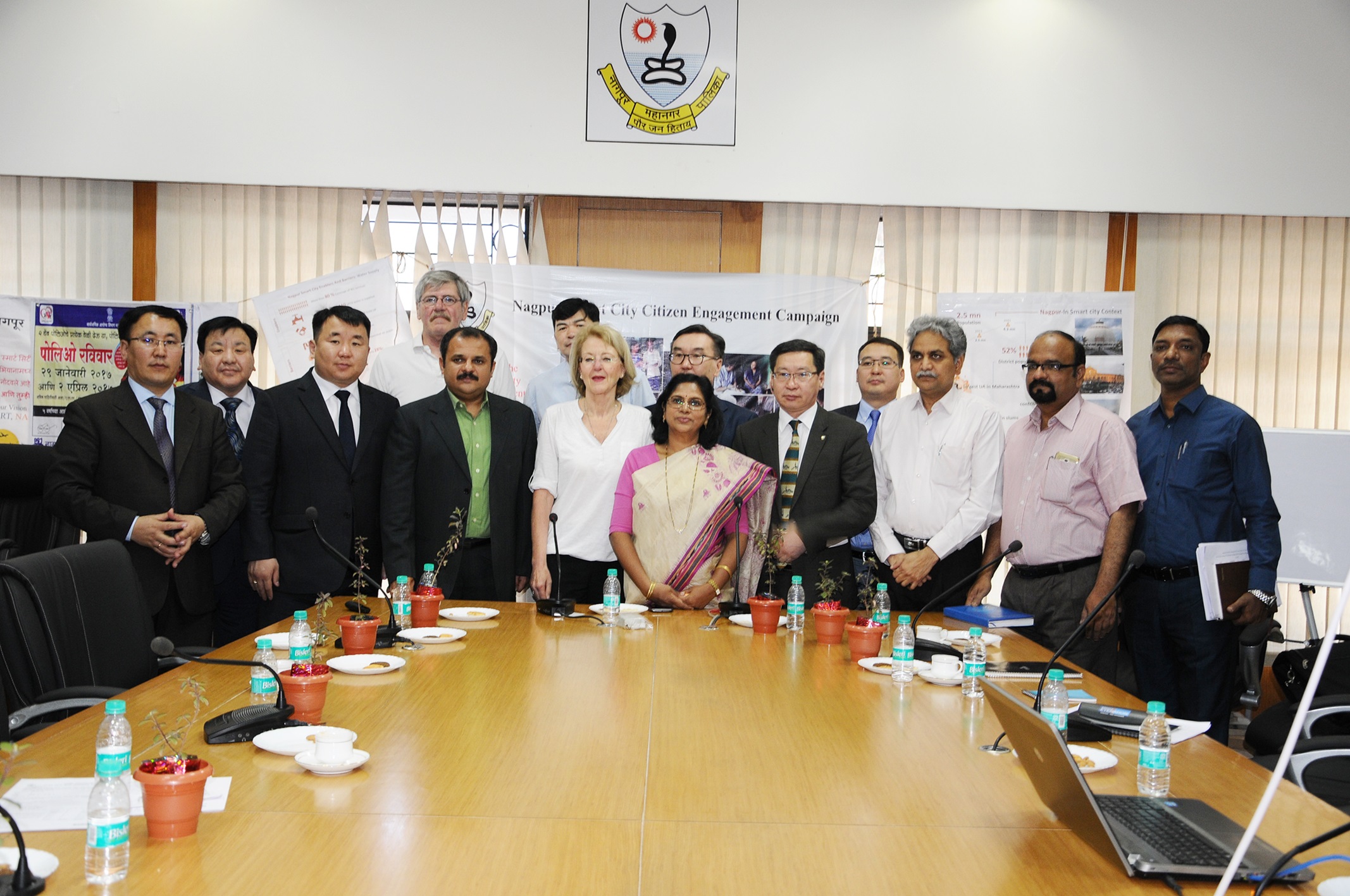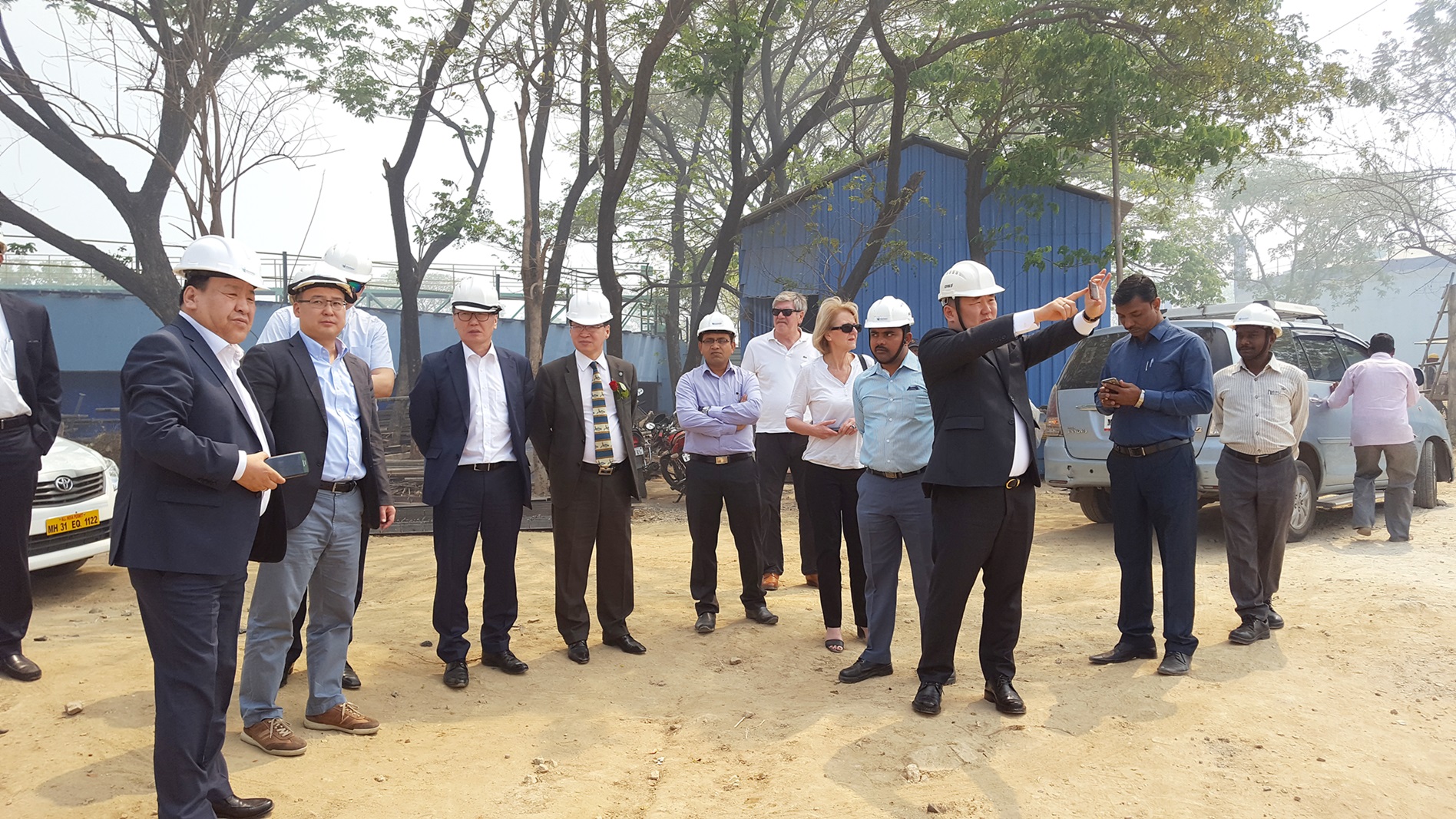In framework of the GIZ “Integrated resource management in Asian Cities: Urban Nexus” project financed by Federal German Ministry of Economic Cooperation and Development (BMZ) a Mongolian Team consisting of 6 representatives of Ulaanbaatar City Municipality and 2 partner Ministries: the Ministry of Construction and Urban Development and the Ministry of Environment and Tourism, National Secretariat for Millennium Challenge Corporation (MCC) visited Nagpur City, India on 18-22 March, 2017 to learn best practices in sustainable water management. The team was led by Mr. T.Gantumur, General Manager of Ulaanbaatar City and Head of the Mayor’s Office.
Nagpur City is the third largest City in the Maharashtra province of India and has 2.5 Million inhabitants.
Nagpur City is pioneering best practice in supplying of treated waste water coming from waste water treatment plants to the CHP’s (Combined Heat and Power plants) for using mainly in cooling processes (cooling towers). In this way Nagpur City will be able to introduce an integrated resource management practices such as conservation of the water resources, ensuring of the sustainable and reliable water supply to power plants, reuse of water for agricultural purposes and production of the biogas out of sludge.
A waste water treatment plant with the capacity of 200 thousand m3 is now under construction (an existing 100 thousand m3 waste water treatment plant is being expanded) in Nagpur City using Public–private partnership (PPP) model with a total investment amounting to USD 40 million and a concession period of 30 years. The private operator company who runs this plant is responsible for 100% of the investment.
In order to reuse the treated gray water in power plants and in other enterprises a third cleaning stage is introduced in the treatment plant treating the gray water up to the required standard. The private company has the right to sell the treated water to entities and have revenue.
This best practice has been already introduced by another treatment plant located nearby using polluted river water as source. The treated water delivered to the thermal power plant for electricity generation which is also the owner of this treatment plant (located 17km far from the power plant). This is a state-of-the-art waste water treatment plant with capacity of 130 thousand m3. Moreover by digesting of the sludge biogas is being produced and transformed into concentrated natural gas (CNG), which will be used as green fuel for public buses.
During the stay in Nagpur City the Mongolian Delegation was welcomed by Ms. Nanda Jichkar, the new Mayor of Nagpur City and Mr. Shravan Hardikar, Commissioner. At the meeting on the occasion of the visit Mr. Shravan Hardikar gave a detailed presentation about the Nagpur’s Smart City Program. This project has been elaborated based on a residents’ survey and study. According to the survey most residents voted for secure traffic and reliable water supply. The Smart City program consisting of introduction of smart traffic and street monitoring, smart LED lighting, public WIFI environment, smart solid waste collection (bins equipped with sensors), glass cable network and “24х7 Water” system has been introduced and presented to the Delegation also by site visits.
Additionally, the Delegation visited the National Environmental Engineering and Research Institute (NEERI) located in Nagpur City. This is a leading research institute under the Academy of Science of India with regard to environmental research and technology. A presentation was given about the numerous implemented researches and studies especially in the field of environmentally friendly and affordable technologies for the waste water treatment, disinfection and reuse, re-cultivation of the degraded mining sites etc.



